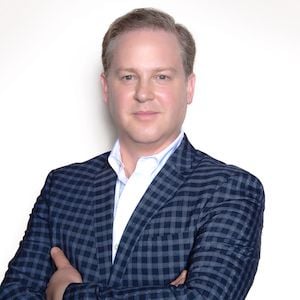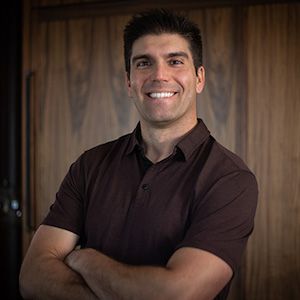For CEOs, it can be the hardest task in a job filled with hard tasks: stepping back from everyday recruitment and people team operations. As a team scales, a CEO simply can’t keep sitting in on every job interview to vet every candidate. However, even when most hiring decisions are delegated to people team leaders or relevant managers, executives still establish company culture from the top.
Major funding rounds are a key inflection point for company growth, so we checked in with six CEOs who raised their first big investments — usually a Series B or C — within the last year. We wanted to know how involved they are (or aren’t) in everyday people operations. Some say they’re still heavily involved, while others have delegated responsibilities as their leadership team has grown.
Even as daily people operations decisions leave a CEO’s plate, the leaders interviewed here still see a major role for themselves in driving a company’s culture. For many, success means their team and culture can keep growing in a positive direction without the oversight of any one individual. As Healthcare.com CEO and Co-founder Howard Yeh put it, a chief executive “will always be involved in helping to set the tone for our culture and core values, but I have become a participant — rather than the organizer and tactical executor — in many of our culture initiatives.”

Aetion CEO Carolyn Magill
Company: Aetion’s platform connects healthcare providers with professionals in the medical device and pharmaceutical industry, supporting collaboration across the industry.
The funding: $19 million Series B in August, following a $27 million round in February 2019.
On a scale from 1-10, how involved are you in your people operations?: 4
Explain: My primary role these days is to advance our culture and ensure that our behaviors reflect it, like our commitment to gender and racial diversity. I also support my team in hiring decisions and recruiting top talent. That said, most of my engagement relates to strategic guidance and being a resource for the efforts of our Chief People Officer, who has been leading our people operations for the past year.
“Once we established overarching guideposts, I started to delegate certain aspects of people operations.”
As your company has grown, at what points did you find it necessary to delegate some of that work? When is it time to hand over the reins completely?
I invested significant thought into defining our mission, vision and values during my first year at Aetion, when we were transitioning from Series A to Series B stage of growth. Once we established overarching guideposts, I started to delegate certain aspects of people operations, such as transitioning our professional employer organization from TriNet to Sequoia. We recruited our Chief People Officer after concluding our Series B, about two years into my tenure as CEO. By then, we had filled half of the leadership roles on my executive team but still had a few critical hires to make.

Notarize CEO Patrick Kinsel
Company: Notarize’s platform allows any person or business to have their documents legally notarized online.
The funding: $35 million Series C in March 2020
On a scale from 1-10, how involved are you in your people operations?: 9
Explain: Since we’re now in hyper-growth mode, I’m very involved in the scaled, high-impact aspects of culture-building. This includes rethinking our values, mission statement, interview processes — the things that will attract and retain the best talent for the next phase of our growth. I also now spend half my time recruiting senior talent, and I’m more aggressive recruiting a candidate when I think they’re a fit.
“Being a ‘hot startup’ sometimes just means investing more in marketing than your peers.”
How has your culture evolved post-funding?
We were in hyper-growth early on, pulled back as the market took longer to develop than planned, and are now in hyper-growth again. While nothing about the company really changed, the perception beyond our walls certainly grew. The lesson is that being a “hot startup” sometimes just means investing more in marketing than your peers — unless you’re doing the hard work inside the organization to keep pace with growth. What I’ve found truly matters is building sustainable systems and a world-class talent organization, creating real customer value and truly investing in your employees to keep a company growing, no matter how it’s perceived.

Starburst Data CEO Justin Borgman
Company: Starburst Data builds features to facilitate the use of Presto, an open-source SQL query engine survey.
The funding: $42 million Series B in June 2020
On a scale from 1-10, how involved are you in your people operations? 10
Explain: It was only a few months after our Series A (a $22 million round in November) that COVID-19 changed everything. We’d already built our cultural values and the concept of becoming a workhorse (not a unicorn), and we were really looking forward to bringing the culture to life in a new office space. We’re always thinking about how to bring our cultural values to life in our hiring process, and I’m excited about the progress there. I think CEOs need to constantly maintain and nurture company culture, which is more than values — it’s how you get your teams aligned around a common purpose and vision, and have fun while achieving great results.
“You need to be ready to bring on new leaders and give them the space to operate so your company can reach its potential.”
As your company has grown, at what points (if any) did you find it necessary to delegate some of that work? When is it time to hand over the reins completely?
Since we bootstrapped Starburst for the first two years, people wore many hats and I wasn’t an exception. I was the CEO, but I was also the head of marketing, sales, HR and finance. Right before we closed our Series A we already had significant customer traction and we knew my sales alter ego needed to retire. In the past year, we’ve come through a $22 million Series A, a $42 million Series B and grown from about 25 people to 130. During that time, I’ve handed over the reins to all functions except finance. You need to be self-aware and know when the demands outpace your ability to meet them. You need to be ready to bring on new leaders and give them the space to operate so your company can reach its potential.

Healthcare.com CEO Howard Yeh
Company: Healthcare.com is an online marketplace that helps users compare healthcare plans in their area.
The funding: $18 million Series B in November 2019, with an additional $5 million raised in June 2020 this year
On a scale from 1-10, how involved are you in your people operations?: 6
Explain: That score has been steadily coming down as our people ops team has grown since its existence of less than a year. I am still heavily involved in job descriptions, scorecards and overall hiring activities for leadership roles. However, for other roles I have moved more toward standards-setting. In the long run, I anticipate my role in hiring will continue on this path, becoming more of an advisor and less in the weeds of the hiring work itself. As CEO, I will always be involved in setting the tone for our culture and core values, but I have become a participant — rather than the organizer and tactical executor — in many of our culture initiatives.
“A Series B company is a different organization than a Series A company, and it demands that leadership grows along with it.”
How has your culture evolved post-funding? As your responsibilities have grown in scope, what steps can CEOs take to steer that evolution in a positive direction?
The biggest impact of funding is the shift in mindset that comes from it. One step that CEOs can take is to make sure they are leveling up their own skill sets and perspectives as the company grows. A Series B company is a different organization than a Series A company, and it demands that leadership grows along with it. There are a couple of ways to do this. One is to have an executive coach who not only provides advice, but also holds you accountable for your own growth. Another thing I’ve done is tap into a peer cohort of CEOs in similar-sized companies who can share experiences and wisdom. I’ve found significant value in learning from my peers who have been through similar challenges and can offer first-hand perspective.

Vault Health CEO Jason Feldman
Company: Vault Health provides telemedicine services centered around men’s health, and provides at-home visits instead of requiring users to visit doctor’s offices for tests.
The funding: $30 million venture round in March 2020
On a scale from 1-10, how involved are you in your people operations?: 10
Explain: I obsess about people. We cannot grow a company to the scale of our ambition without talent as my top priority.
“I think it is really important for a CEO to have self-awareness and know when it’s time to hand over the reins.”
As your company has grown, at what points (if any) did you find it necessary to delegate some of that work? When is it time to hand over the reins completely?
I continue to look for ways to reduce intermediaries in decision-making and ask others on my leadership team to take on more. I am pretty good at knowing (but continue learning) where I am strong or need help, so when a leader with more experience and ability can take additional load it allows me to dive deeper in the future as we plot our growth course. I think it is really important for a CEO to have self-awareness and know when it’s time to hand over the reins. I don’t have a personal timeline, but as a mission-driven leader I want to find and help develop my successor before I get to the place where my contribution is not valued.

STRIVR CEO Derek Belch
Company: STRIVR builds VR technology to simulate real-world, on-the-job scenarios to augment company training programs.
The funding: $30 million Series B in March 2020
On a scale from 1-10, how involved are you in your people operations?: 2-3
Explain: I view “people operations” in a few different ways, with my involvement being different in each area. With more than 130 people, I am involved very little in the hiring process nowadays — the exceptions being if someone wants me to take a “closing” meeting with a candidate or if it’s an executive role that will report directly to me. Similarly, when it comes to the onboarding, learning and development aspect of people operations, I found that the best way to care for our people is to hire experts to focus solely on employee experience. But when it comes to company culture, I would rate myself a “10” in this area of people operations. As the CEO, you have to eat, sleep and breathe your company culture on a daily basis. An example is the 45 minutes I spend with every new hire within their first couple of weeks at the company. I walk them through our core values and cultural expectations and answer questions. In this way, I forge an immediate personal connection with all of our employees, and also show them that our culture is something that we take very seriously, and work hard to embody on a daily basis.
“I think it’s important to consciously show the workforce that the money is only going to evolve the culture for the better.”
How has your culture evolved post-funding? As your responsibilities have grown in scope, what steps can CEOs take to steer that evolution in a positive direction?
When CEOs raise any amount of money — especially large amounts of money — I think it’s important to consciously show the workforce that the money is only going to evolve the culture for the better. In fact, we try hard to not use the word “change” at STRIVR, and instead talk about how we’re going to evolve. To me, “evolve” is a much more positive and proactive word that implies positive change and adaptability to one’s surroundings. It’s important that CEOs constantly reinforce this with their companies, especially after major capital infusions.

Fetch Package CEO Michael Patton
Company: Fetch Package coordinates with and delivers packages to apartment dwellers, taking the burden off property management to collect, sort and store them on tenants’ behalf.
The funding: $18 million Series B in August 2020
On a scale from 1-10, how involved are you in your people operations?: 5
Explain: I was at a 10 on this question in the early years of building Fetch, as it was imperative to hire employees who identified and aligned with our culture so they could then carry the torch. I have pulled back over time, and I like to think that my role as CEO is to set the culture and expectations, but it comes down to our leadership team members to uphold those core values as they hire and scale their own teams.
“The values in the early, bootstrapped days should survive even when you have more cash in the bank.”
How has your culture evolved post-funding? As your responsibilities have grown in scope, what steps can CEOs take to steer that evolution in a positive direction?
I believe culture shouldn’t change materially after a fundraise. The values in the early, bootstrapped days should survive even when you have more cash in the bank. There are always nuances and small changes, but the core values that got us from pre-seed to seed, seed to Series A, and so on, are the same values that will get us to the eventual finish line.
For the second part of the question, I’d go back to empowering your team to make decisions that align with the culture that you built and continually stand for. As a CEO you have to hire people who align with your cultural values, and once they’re on the team you have to trust them to uphold those values.



